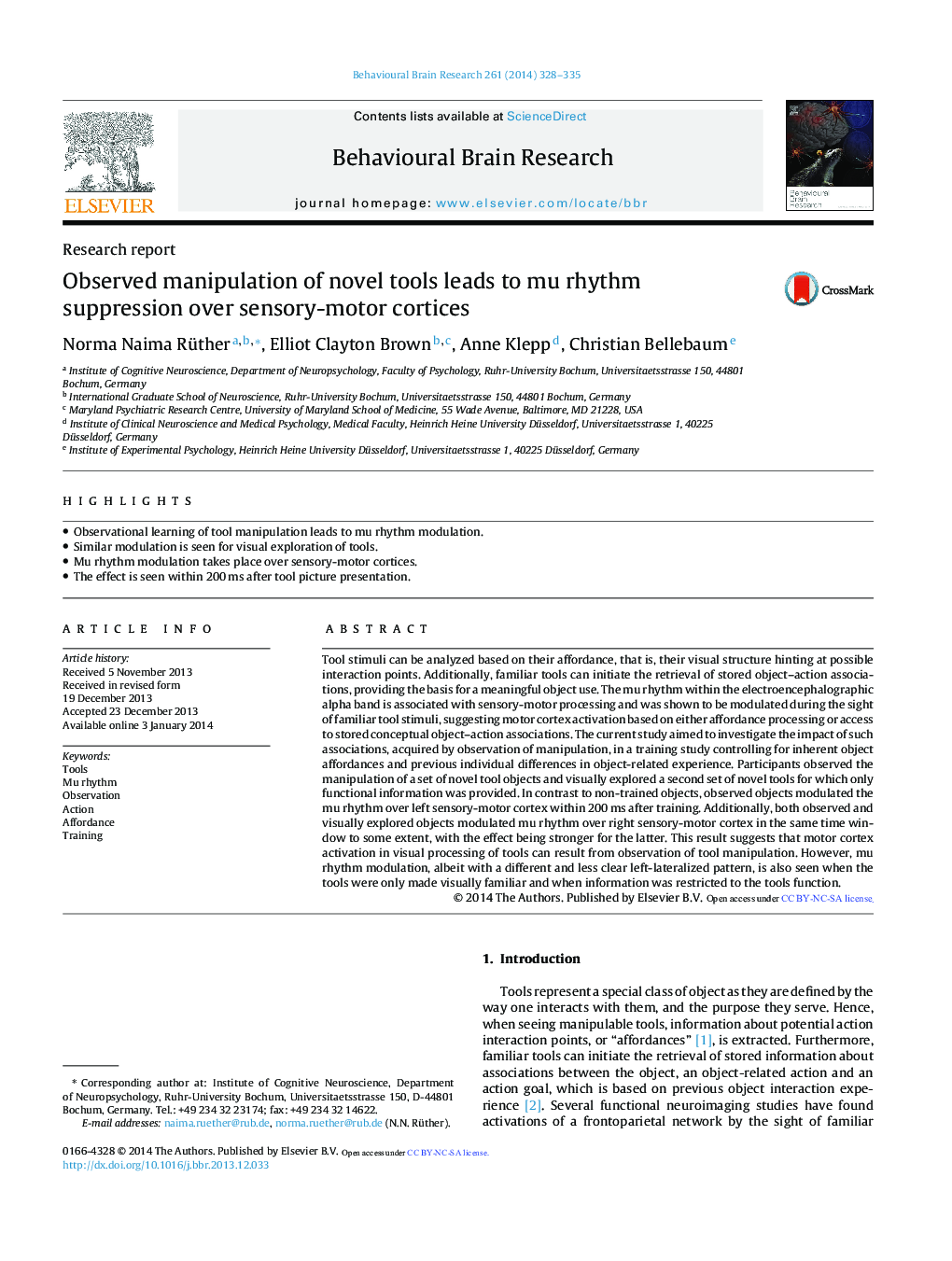| Article ID | Journal | Published Year | Pages | File Type |
|---|---|---|---|---|
| 6258387 | Behavioural Brain Research | 2014 | 8 Pages |
â¢Observational learning of tool manipulation leads to mu rhythm modulation.â¢Similar modulation is seen for visual exploration of tools.â¢Mu rhythm modulation takes place over sensory-motor cortices.â¢The effect is seen within 200 ms after tool picture presentation.
Tool stimuli can be analyzed based on their affordance, that is, their visual structure hinting at possible interaction points. Additionally, familiar tools can initiate the retrieval of stored object-action associations, providing the basis for a meaningful object use. The mu rhythm within the electroencephalographic alpha band is associated with sensory-motor processing and was shown to be modulated during the sight of familiar tool stimuli, suggesting motor cortex activation based on either affordance processing or access to stored conceptual object-action associations. The current study aimed to investigate the impact of such associations, acquired by observation of manipulation, in a training study controlling for inherent object affordances and previous individual differences in object-related experience. Participants observed the manipulation of a set of novel tool objects and visually explored a second set of novel tools for which only functional information was provided. In contrast to non-trained objects, observed objects modulated the mu rhythm over left sensory-motor cortex within 200Â ms after training. Additionally, both observed and visually explored objects modulated mu rhythm over right sensory-motor cortex in the same time window to some extent, with the effect being stronger for the latter. This result suggests that motor cortex activation in visual processing of tools can result from observation of tool manipulation. However, mu rhythm modulation, albeit with a different and less clear left-lateralized pattern, is also seen when the tools were only made visually familiar and when information was restricted to the tools function.
